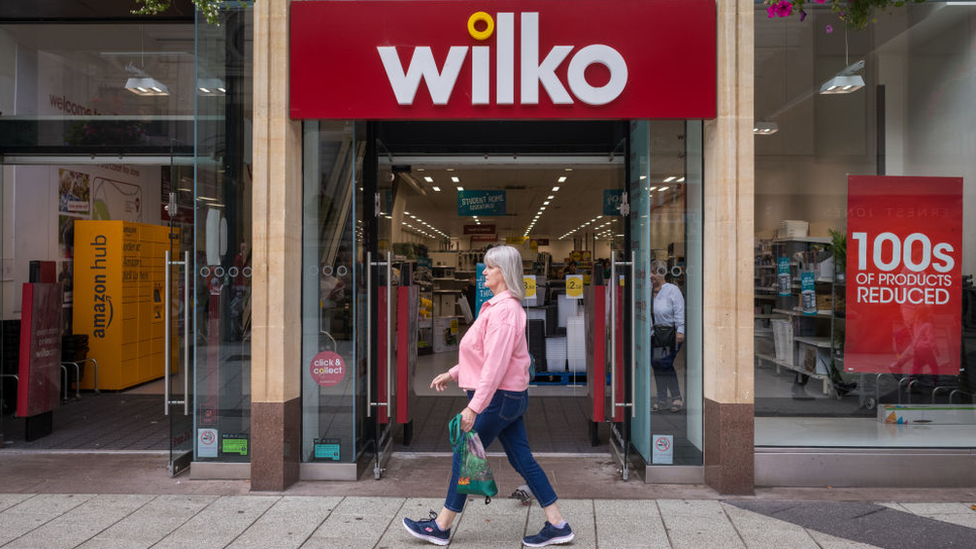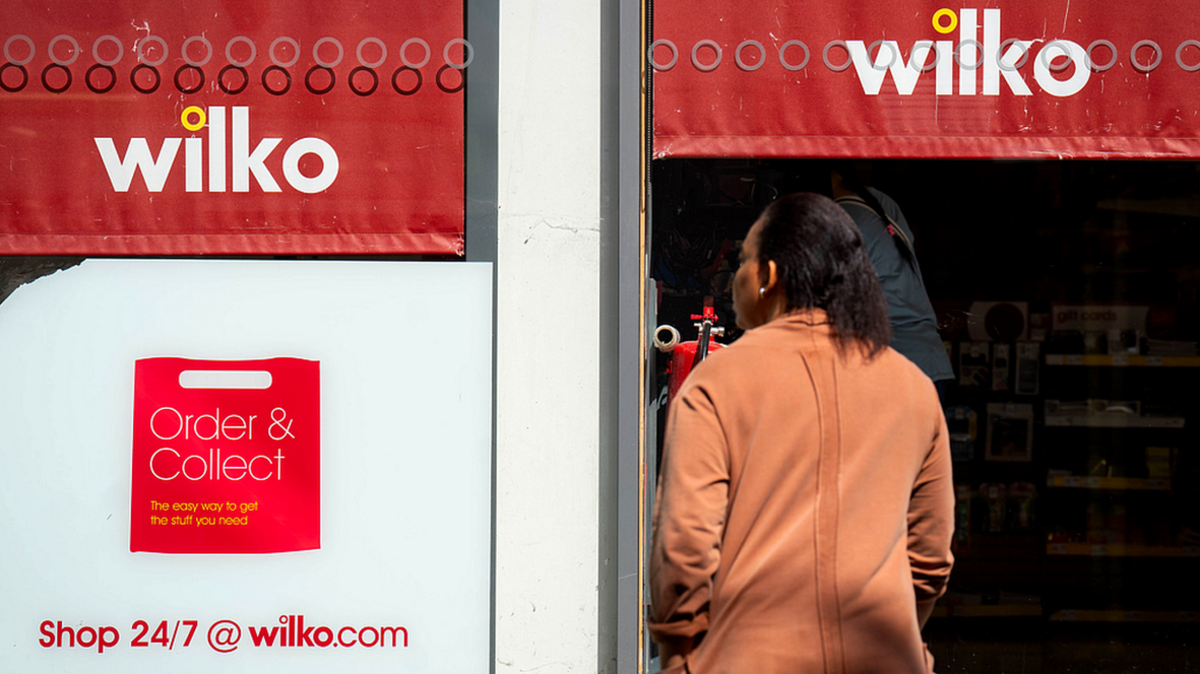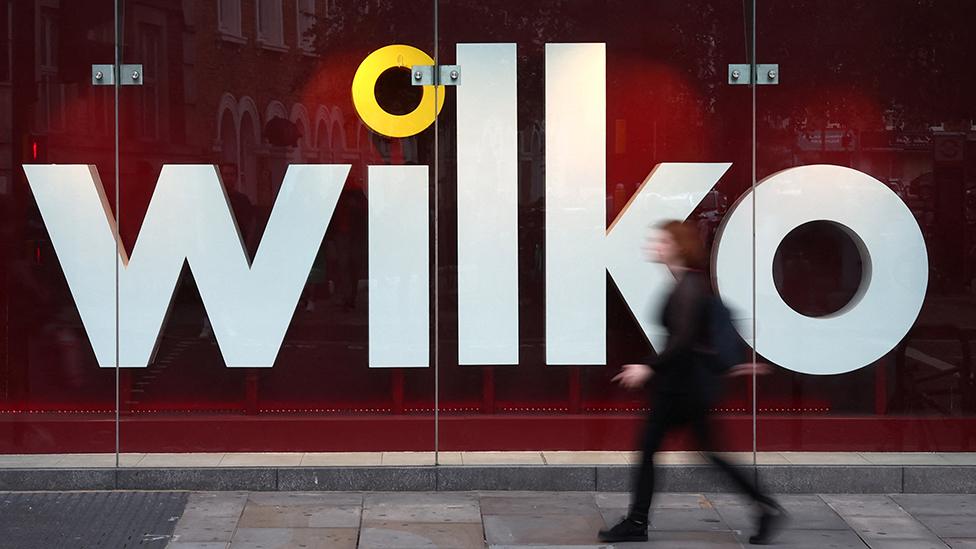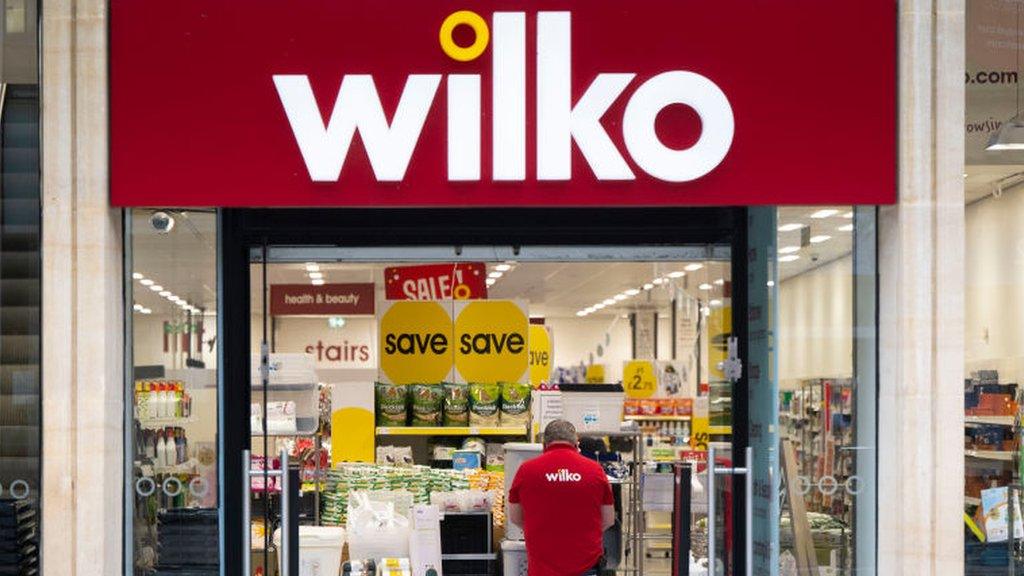Wilko: Jobs to go as attempts to find a buyer fail
- Published

The administrators of Wilko have said jobs are set to go and stores will close after it failed to find a buyer for the whole business.
However, PwC said parts of the group could still be bought.
Wilko announced earlier this month that it was going into administration, putting 12,500 jobs and its 400 stores at risk.
PwC was tasked with trying to look for a buyer for all or part of the business.
In a statement, PwC said: "While discussions continue with those interested in buying parts of the business, it's clear that the nature of this interest is not focused on the whole group.
"Sadly, it is therefore likely that there will be redundancies and store closures in the future and it has today been necessary to update employee representatives."
PwC said it understood the news would further add to uncertainty felt by workers and said it would be supporting staff.
It said that in the immediate term, all stores remain open and continue to trade, and that staff would continue to be paid.
It added there were "currently no plans to close any stores next week".
Earlier, the union representing workers at Wilko said the majority of stores were to close "within weeks" after a purchase fell through.
The GMB said that some stores might be bought, but "significant job losses" were now expected.
Its national secretary, Andy Prendergast, said the union would seek to ensure its members "receive every penny" they are entitled to.
"We will fight to ensure Wilko bosses are held accountable for the simple reason our members deserve so much better," he added.
The company, which was founded in Leicester in 1930, is well known for its affordable everyday items.
After the collapse of Woolworths in 2008, Wilko - which is still family run - stepped up to fill the gaps left on High Streets.
But it has been struggling with sharp losses and a cash shortage.
Sarah Montano, professor of retail marketing at the University of Birmingham's Business School, said the collapse of Wilko was not particularly surprising.
She told the BBC 5Live's Wake up to Money: "From the consumer point of view, I think it comes back to this reason: why would you go to Wilko?
"They haven't kept up with their competitors," she added. "In retail you could start out as unique and as innovative as you could possibly be, but, over time, gradually your competitors are going to do similar things to what you do."
Many of Wilko's stores are in High Street locations in traditional town centres, which became an expensive liability as customers shifted to bigger retail parks and out-of-town locations.
The company has also faced strong competition from rival chains as the high cost of living has pushed shoppers to seek out bargains.
There has been speculation that some of those rivals, such as B&M, Poundland, The Range and Home Bargains, could be those interested in the firm.
- Published17 September 2023

- Published12 September 2023

- Published22 August 2023
